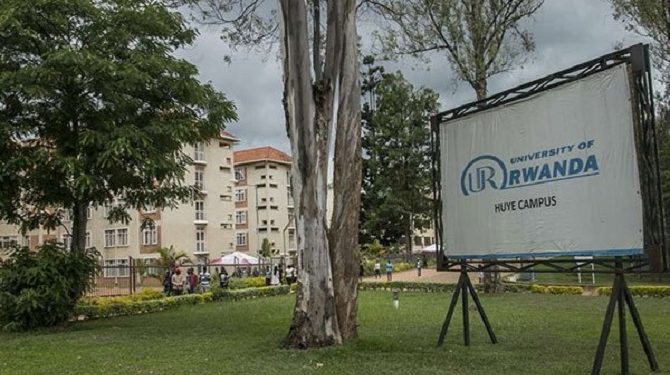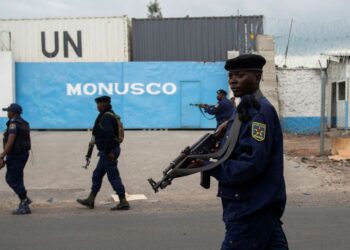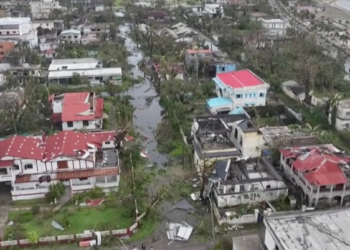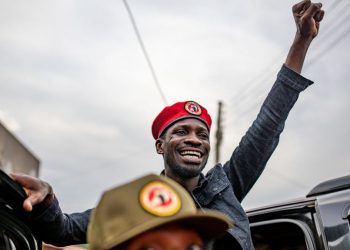By New African
Rwanda has been one of the star performers across development indicators over the past two decades. Central to achieving its goals is having a productive and educated workforce. But this, as Education Minister Dr Valentine Uwamariya tells New African, this will require heavy investment in both hard and soft infrastructure.
Most visitors to Rwanda are pleasantly surprised by the country’s efficiency. Things work. Yet at the same time you are reminded that only 26 years ago, a horrific genocide devastated virtually everything and flattened almost all institutions, including schools.
Rebuilding the country from scratch has been, unarguably, an impressive undertaking. It has averaged economic growth of around 8% over the past decade and a half and it has Africa’s highest ranking in the World Bank’s Ease of Doing Business Index.
The capital, Kigali is amongst the cleanest and safest cities in the world. Before the pandemic, it was also one of the favourite conference destinations in Africa – with world class facilities. It has also positioned itself as a technological hub. It is also emerging as an important manufacturing base and has plans to become the region’s financial centre.
Rwanda, a small country with a dense population, has few if any natural resources and is landlocked. To succeed, it has adopted a knowledge and service based approach – mirroring Singapore, the dynamic island nation which has become one of the world’s wealthiest and on which Rwanda has been modelling itself.
Singapore’s extraordinary success is based on a shrewd exploitation of its geographical position on one of the world’s busiest shipping routes but mainly on the highly educated quality of its workforce.
Therefore, one of the priorities of the administration set up by President Paul Kagame has been on ramping up access to education up and down the country. But given the utter destruction of the system during the genocide and a shortage of resources, ranging from budgetary finance to physical infrastructure to teaching staff and materials, the country faces many hurdles in its quest for universal education.
An impressive record of achievement
Education Minister Dr Valentine Uwamariya does not mince her words: “We have challenges at all levels of education, not only at primary, but also secondary and tertiary education levels.”
However, while she acknowledges the challenges, she sees the solutions as opportunities that will help to enhance and transform the education system.
Since 2012, education to grade 12, (senior secondary level) has been free of charge and schooling to grade 9 is compulsory. Interestingly, Rwanda has one of the highest elementary school enrolment rates in Africa. Free elementary education was introduced in 2003 and according to a World Bank report the primary gross enrolment ratio (GER) stood at over 100% by 2013 (GER can exceed 100% because older children may also be enrolled).
“By 2017, practically all primary and secondary schools had toilets, nearly 60% had tap water, and hydroelectric supply is available in more than 55% of primary schools and in more than 70% of secondary schools,” adds the same report, issued in 2018. “Computers are available in nearly 70% of the primary schools and 85% of secondary schools. The Internet is accessible in 25% of primary, and in more than 40% of secondary schools.”
In 2012 the country won the prestigious Commonwealth Education Good Practice Award following the construction of more than 8,600 classrooms in 2009 -11.
Despite fiscal constraints, the expansion of education facilities has continued. Dr Uwamariya says in excess of 22,500 new classrooms are being added to the total and there is a massive teacher training and recruitment drive.
The Ministry of Education has an agreement with Microsoft on various education products that will provide the Windows system at affordable cost for students. At higher education level, the partnership will leverage Microsoft products to enhance their practical skills.
The government has also raised its education budget to 15% – one of the highest in Africa – and Dr Uwamariya says the target is to gradually increase this to 20% by the end of the current five-year education plan in 2024.
Despite these impressive achievements, problems remain, says the minister. As in many countries with large rural populations, enrolment and attendance at schools can be patchy. To counter this, the ministry goes on campaigns to explain the benefits of sending children to pre-school from the age of three; and it is now highly encouraged that a child is enrolled one year before entering primary school. “This involves a lot of dialogue and sensitisation at a district level to change mindsets” she says.
Education is under the management of local government. The ministry coordinates the planning and curriculum, and works with the district authorities to overcome the gaps, she explains. A lot of it is about persuading parents of the value of education.
Another big focus is to ensure that children are not only attending school but that their attainment levels are adequate. There are still far too many children who have to repeat a year or drop out, she explains, so the ministry has introduced remedial and catch-up programmes for those with difficulties.
“We have put in place a system of continuous assessment to identify early those that are falling behind. People dropping out of school is government’s problem and the buck stops with my ministry,” she says.
Covid-19 disruptions
As elsewhere, the Covid-19 pandemic has severely disrupted the education system. Schools were closed for eight months, she says. Other issues have also arisen because of the collateral impact of Covid. For example, teenage pregnancies have also compounded problems around some students not being able to pursue their studies as a result.
However, on the plus side, the lockdowns have shown the value of digital connectivity, which has now become an important mode of teaching.
Schools reopened in October and Dr Uwamariya says that they are back to 95% attendance. A countrywide campaign is under way to make sure the remaining 5% get back to school.
The ministry has put into place a catch-up plan to ensure that whatever teaching of the curriculum was missed during the closure is covered. “It hasn’t been easy,” she admits, “because but it’s a lot of added pressure on teachers but we are confident that by the end of the academic year, any shortfalls in learning caused by Covid will have been made up.
The government, she adds, has budgeted for a 10% increase in teacher salaries this year and a further 10% next year. This is partly to elevate the position of teachers in society and partly to ensure they are properly remunerated.
But the biggest shift is possibly around what is being taught and how things are taught.
There is greater focus on continual competency-based assessment to foster critical thinking and minimise rote learning. The emphasis is on the individual student’s strengths and on more practical knowledge. Time for extra-curricular activities is factored into the system.
Rwanda’s development strategy places emphasis on science, technology, engineering and mathematics (STEM) and adds vocational and technical training to turn the country into a sophisticated knowledge-based economy.
Dr Uwamariya says the government consulted and worked with the private sector to understand their needs.
“We conducted a market survey and involved the private sector before developing the curriculum,” she adds. “Not only that, even when we assess children, we involve the private sector and ensure that what we are training and the way we are training is what is needed in the market.”
Technical and Vocational Education and Training (TVET) is provided by technical secondary schools and vocational training centres at the secondary level, as well as by polytechnics at the post-secondary level.
There are also different types of practically oriented, competency-based certificate programmes offered by vocational training centres that are designed to prepare students for direct entry into the labour force.
Collaborating for success
Dr Uwamariya herself studied biochemistry at undergraduate level before doing a PhD in chemistry. At the time, many of the professors teaching at the university were actually from the DRC. Because she was a strong performer, she was encouraged to join the teaching staff at the university. However, she adds that she went into academia because there weren’t many opportunities in industry in her particular field.
Are STEM subjects more popular now than when she was student? “It’s still difficult to convince girls to study STEM subjects. I was inspired by my uncle – with whom I was staying as a young child – who was himself a teacher and he would take me with him to school. But we’re working at all levels to encourage more girls to study STEM.”
Rwanda’s tertiary education sector is still relatively small. Between 1963, when the National University of Rwanda was founded, and 1994 there were only 2,000 graduates. Today there are around 27 higher education institutes with a total enrolment of slightly more than 89,000 students.
If she had to select the one aspect that she feels her ministry has got just right, what would it be?
“Undoubtedly,” she says, “it’s being pragmatic. All of us take a very pragmatic approach to solving problems. That means that we engage with a wide range of partners. If they’ve got something to offer, we will work with them. We don’t close any doors.”
This collaborative and pro-active approach is typical of all the country’s ministries, she says. “As long as they’re aligned with the country’s development interests, they will work with external parties and partners, and will encourage collaborations and feedback.”
I raise with her the issues of values. Since the genocide the country has insisted on developing a common identity – being Rwandese first – and has put in place activities that help build that notion of collective responsibility, such as the Umuganda practice, wherein on the last Saturday of the month communities get together to clean up in front of their houses, and thus look after their neighbourhood and their resources.
Dr Uwamariya says that Umuganda is an example of self-reliance and self-dignity. “Our overall education policy, which we are updating this year, is anchored around numerous Rwandese values. This new policy is based on producing men and women with the necessary and sufficient knowledge, skills, competence and values.”



























































